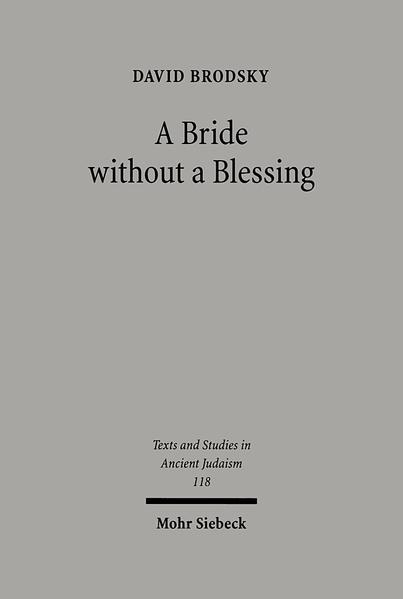BRODSKY,D., A Bride without a Blessing. Tübingen 2006.
A Bride without a Blessing. A Study in the Redaction and Content of Massekhet Kallah and Its Gemara. 1. Aufl. Tübingen, Mohr Siebeck, 2006.
24 x 16 cm. XVIII, 551 S. Leinen. (Texts and Studies in Ancient Judaism, 118). ISBN 9783161490194.
David Brodsky uses form and source criticism to date Massekhet Kallah and the first two chapters of Kallah Rabbati – which form a commentary on Massekhet Kallah – to the mid-amoraic period (circa late third and early fifth centuries CE respectively), and to locate their redaction in Babylonia. This makes these two sources the only known rabbinic texts whose final redaction took place in Babylonia during the amoraic period, and establishes them as the closest extant relatives of the Babylonian Talmud. Parallels between these two sources and the Babylonian Talmud elucidate the nature of oral transmission and of the redactional processes of Babylonian rabbinic material during this critical period, and, thereby, of the Babylonian Talmud itself. In addition, the author deciphers Massekhet Kallah’s peculiar asceticism: a concern with men’s inappropriate use of or interactions with their wives, charity, vows, and even with the group’s own transmitted traditions. Massekhet Kallah fears the physical and at times cosmic effects of such inappropriate behavior. Brodsky finds that these items were all deemed consecrated, removed from the realm of normal interaction. To have mundane interaction with them was a powerful and dangerous act. Brodsky explores the fascinating gender and theological implications of this unique asceticism.
Bestellnummer: 1800VB
Gebundener Ladenpreis: EUR 174,--

